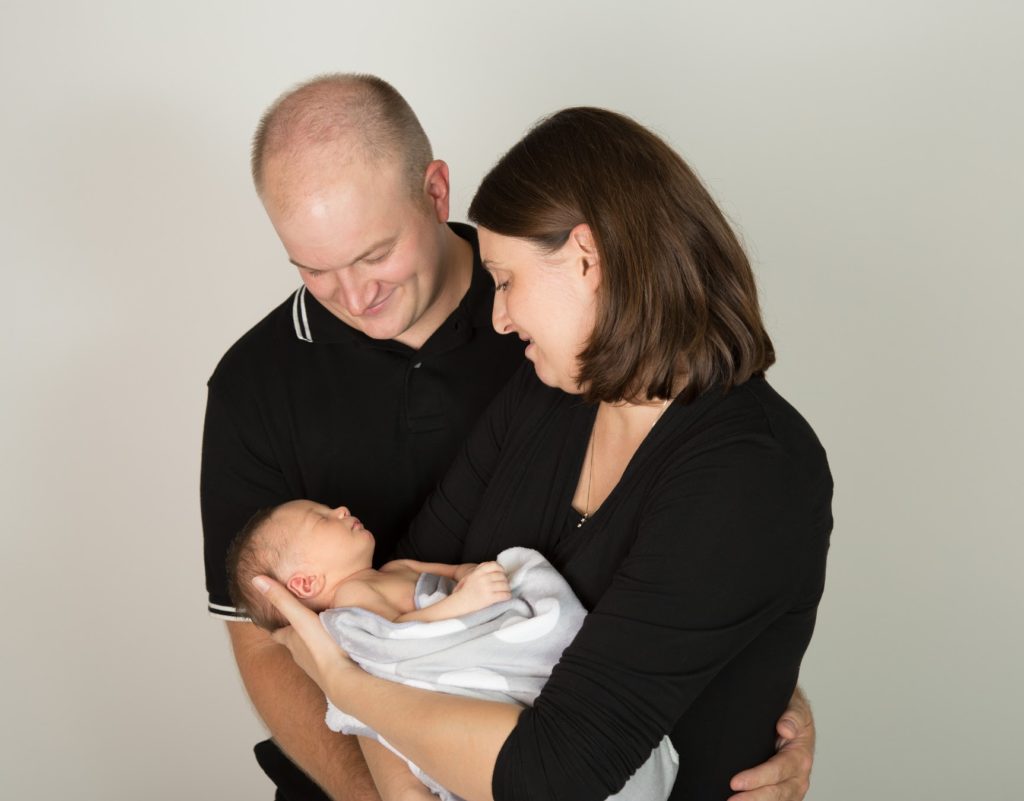
Julia Maki is an IAS General Board Member
After my husband and I got married, I was in graduate school, so we didn’t start trying to get pregnant until about four years later. When we finally thought the time was right, we didn’t have the expectation that it would happen quickly. However, after only two months we saw that amazing little second line on the pregnancy test. We were unbelievably shocked, excited, and also terrified! We told our close family right away, and a few friends. After only a week or so, the fear we were experiencing about having a baby quickly turned to fear that we wouldn’t be having a baby after all, as I started bleeding at five and a half weeks pregnant.
We rushed to the emergency room, where we waited for six hours to get out of the waiting room and be seen. Finally, around 2am, we were able to have an ultrasound, which indicated that the embryo was either not present at all (a blighted ovum), or was so delayed in developing that it almost definitely wasn’t a viable pregnancy. We left the ER around 3am, all our hopes crushed. The OB told us to follow up with another ultrasound a week or two later, to confirm the diagnosis and see if I would need surgery (if the miscarriage failed to happen naturally). We suffered through the week of waiting for the next ultrasound, and showed up at the OB’s office surrounded by happily pregnant women. That was the first time I remember experiencing the awful and overwhelming feeling of unfairness that defines infertility and recurrent miscarriage.
We were expecting to confirm the diagnosis of blighted ovum, but instead the ultrasound tech turned the monitor and showed us a heartbeat. There was in fact an embryo and it had a heartbeat. Unfortunately, at that point in the process, we were still so naïve that we looked at each other and started crying, thinking that it had all been just a big misunderstanding. In fact, although present, the heartbeat was extremely slow. The OB wouldn’t quite say outright that it was bad news and she wouldn’t quite say that it was good news. She just said we’ll take another look in two weeks.
The following two weeks were some of the most confusing of my life. We went about our lives mostly in denial, thinking that surely things will be back on track the next time we go in. I bought a few maternity clothes, and we started thinking about what life would be like with our baby. When we returned to the OB’s office two weeks later, we were devastated to see that there was no heartbeat.
Over the next three years, we got pregnant five more times, and five more times we lost the baby before the end of the first trimester. Those three years are some of the worst of my life, including a great deal of fighting between my husband and I when we couldn’t see eye to eye about how to feel or how to communicate about our losses.
As time went on we began to more seriously consider adoption as an option to have our family. We began attending IAS adoption meetings infrequently, but every time we went we felt completely amazed at how much we learned. I saw that the families there, even though they might be frustrated about certain parts of the process, were all hopeful because they knew that they were moving forward towards having a baby. We left feeling that no matter how, we would have a family. In the face of all the hopelessness of recurrent miscarriage, this glimmer of hope was invaluable to me.
I also found out about the IAS infertility meetings around this time, and began attending. The feeling of being able to share my growing frustration with life, my relationship with my husband, and watching everyone around me pass on to motherhood with such ease was a huge relief. I looked forward to each meeting, and left feeling pounds lighter.
In 2013, after six losses and years of indecision, we decided that we would try for a successful pregnancy one last time. If it failed (as I expected it would), we would adopt. In fact, we picked an adoption agency and filled out the application paperwork, just to make sure that we had a plan in place when the time came.
I got pregnant for the seventh time in October of 2013. Things started out exactly as all my previous pregnancies had, with bleeding and inconclusive ultrasounds. Over the first trimester, we had confusing test after confusing test. One ultrasound would go badly, and we’d be sure of a miscarriage. A week later, we’d have a good ultrasound where everything looked normal (besides the bleeding). One more week and the heartbeat was too low, growth was too slow, etc. We had no idea what to think, or whether to have hope. Finally, at twelve weeks, when I’d had two good ultrasounds in a row, we were told that this pregnancy had a 97% chance of survival, and would almost definitely be our take-home baby.
Our daughter was born in July of 2014, and she is everything we ever hoped for. No one should ever have to endure infertility and recurrent pregnancy loss, but when I see my daughter, I know she was worth all of the suffering. We’re unbelievably lucky, and try to appreciate every day with her.
